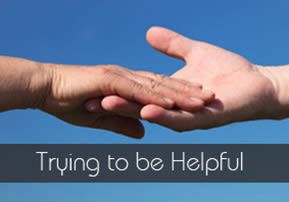
Trying to be Helpful
Hashem showed me that truly being helpful meant no strings attached, no ulterior motives, and certainly no expectations in return; helping others is not an ego trip...

When I was little, my granddad made a big impression on me. My granddad, or ‘Taid’, as I used to call him, was a very good person. A very, very good person. He was nearly always cheerful; he was scrupulously honest; he was very kind; and he did his best to try to help people out, in whichever way he could.
Sometimes, Taid would help people out by putting up a shelf, or fixing an appliance. Sometimes, Taid would help people out by popping round to see them; or dropping something in. Sometimes, Taid would help people out by jump-starting their cars, or even, taken off his jacket and tie, rolling up his sleeves, and scooting under the car to see what the problem really was.
I grew up watching Taid be helpful, and I think that it planted the seed that eventually grew into a strong desire 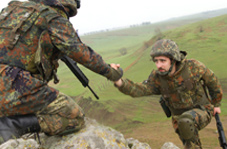 to ‘be helpful’ myself. As the oldest of five siblings, I had plenty of opportunity to try to be helpful when I was growing up. I cooked, I babysat, I carefully combed out long, knotty hair, I changed diapers, I pushed people on swings, I ran errands to the local shops. And I felt pretty good that I was trying to be helpful.
to ‘be helpful’ myself. As the oldest of five siblings, I had plenty of opportunity to try to be helpful when I was growing up. I cooked, I babysat, I carefully combed out long, knotty hair, I changed diapers, I pushed people on swings, I ran errands to the local shops. And I felt pretty good that I was trying to be helpful.
For a long time, I tried to be helpful in school too, but that was a lot more complicated. Schoolmates were not siblings. Schoolmates didn’t like to be bossed around so much, even if you were trying to do ‘nice’ things for them. So the ‘trying to be helpful’ gene recessed for a few years, and didn’t really start coming to the fore again until after university.
And then, it kicked back in, big time. I was trying to be helpful all over the place: I was trying to ‘educate’ my secular work colleagues by inviting them for Shabbat supper; I was trying to make mums with post-natal depression happier by making supper for them; I was trying to cheer up best friends who had just been unceremoniously dumped by the latest boyfriend they thought they were going to marry… There was a lot to do.
But I’d be lying if I said that my ‘trying to be helpful’ came with no strings attached – it didn’t. Back then, if I tried to help someone, I had a firm expectation that they should also be trying to help me back, if the need and the occasion ever arose.
Which is where the equation broke down, because more often than not, the ‘trying to be helpful’ was a one-way street. It took me years and years of disappointment, and years and years of introspection to realize just how loaded all my ‘trying to be helpful’ had really been.
Yes, I felt good that I was trying to do good things. But I also felt very full of my own ‘goodness’, and puffed up with how wonderful I was, especially when I wasn’t getting any practical ‘payback’ from it all.
There was another flaw in my ‘trying to be helpful’; it didn’t always extend to my nearest and dearest. Again, it took a long time for me to realize what was happening, but the penny finally dropped when I’d made three gourmet meals in one week for people who had just had babies – and had no food in the house to feed my own family.
And then, my ability to ‘try to be helpful’ disappeared for a while. I didn’t have enough money for the basics I needed for my own immediate family, so making food for others, or buying them presents, or spoiling them, went completely out the window. We even struggled to give money to charity at that point, which was very hard, as giving money for good causes had always struck me as the best possible way to ‘try to be helpful’.
But G-d was educating me about what counts as really ‘helpful’, and He was showing me that when all the trying to be helpful was too firmly attached to a feeling of arrogance and ‘getting things done’, it could often do more harm than good, at the very least, to me.
Subtly, the ‘trying to be helpful’ impulse shifted away from practical things like meals and money, and shifted into ideas and ‘support’. I tried to be a good shoulder to cry on for people going through a hard time; I tried to use all the difficulties I’d experienced – and the amazing lessons I’d learned from them – to try to help other people navigate their own rough patch. I tried to introduce Breslev ideas, and ideas about emuna, into every conversation, because I knew how much they’d helped me, and I really wanted them to help other people, as well.
But often, it didn’t really work the way I hoped it would. Often, people didn’t want to hear about it. Often, even if they heard about it, they didn’t want to try it out for themselves. Often, even if they tried it out for themselves, it was a very short-lived experiment, and they remained stuck in their ‘big problems’ and despairing of ever finding a solution.
And then, I started to find it very hard to know what else I could do to be ‘helpful’. Should I just keep repeating things over and over, like a parrot, about the need for talking to G-d every day? Should I keep trying to point out the spiritual dimension of the problems being discussed, even when people were clearly not interested in hearing about it? Should I continue to talk about emuna, and teshuva, and hitbodedut, when it elicited a strong, negative reaction in the person I was having a conversation with?
And if not, then what else could I do to try to help?
I’m still asking myself that question.
In the meantime, G-d has started to show me that sometimes, the simplest things can actually accomplish the greatest good. While I’m still groping around for the right words, the right ideas, the right moments, I’m trying to keep the lines open with small kindnesses: a home-baked cookie; a bit of free baby-sitting; a Shabbat ‘away’ from having to cook.
I’ve realized I can’t help people to change – only they themselves can do that, with a lot of help from G-d. But even if I can’t change the core of the issue, the heart of the problem, the root of the suffering, I can still try to apply a bit of silent, soothing ointment to the most obvious pain.
And I can still pray for them, that G-d will really open their eyes to what they need to fix, open their hearts to the love that’s all around them, and open their souls to G-d’s infinite, blessed Light.
And that’s probably the most helpful thing of all.


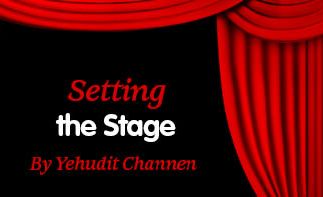




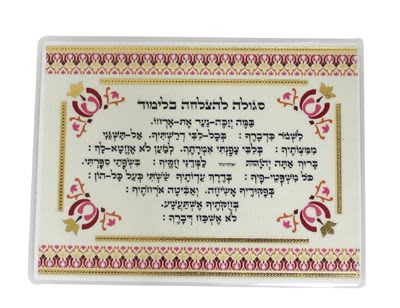


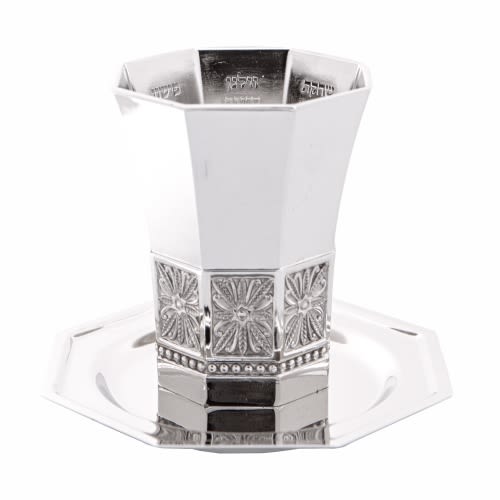
Tell us what you think!
Thank you for your comment!
It will be published after approval by the Editor.